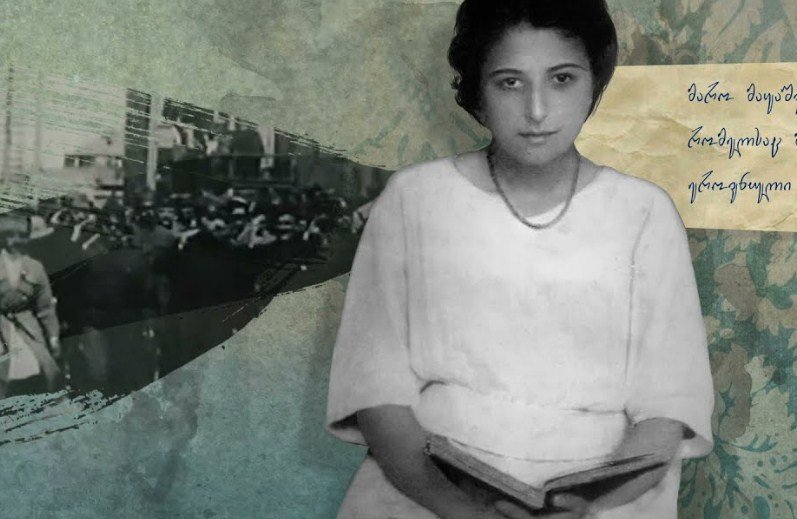A Passionate Writer and Activist
Maro Makashvili was born on August 25, 1901, in a family of Georgian nobility and culture. Her father, Kote Makashvili, was a poet and her maternal grandmother, Ekaterine Gabashvili, was a writer. Maro inherited their love for literature and started writing a diary when she was 16 years old. In her diary, she expressed her thoughts on various topics, such as women’s rights, civic engagement, and social activism. She also wrote poems and essays, some of which were published in newspapers.
Maro was not only a talented writer, but also a sporty and adventurous girl. She was a member of the Georgian Gymnastics Society Shevardeni, where she practiced different kinds of physical exercises and participated in public events. She challenged the gender norms of her time and faced discrimination from some of her male peers, who thought that women should not engage in sports. Maro did not let them discourage her and continued to pursue her passions.

A Brave Nurse and Martyr
Maro was a student at the Tbilisi State University when the Red Army launched its invasion of Georgia in February 1921. The Soviet forces wanted to overthrow the Democratic Republic of Georgia, which had declared its independence in 1918 after the collapse of the Russian Empire. The Georgian people resisted the invasion and defended their sovereignty and democracy.
Maro volunteered as a nurse and joined the Georgian Regiment, which was sent to Kojori, a strategic location near Tbilisi. She helped the wounded soldiers and comforted them with her kindness and compassion. She was also ready to fight with a rifle if needed. On February 19, 1921, she was killed by splinters from a shell that hit the hospital where she was working. She became one of the many victims of the war, which ended with the Soviet occupation of Georgia.
A National Hero and Symbol
Maro’s death shocked and saddened the Georgian society, especially her family and friends. Her father, Kote Makashvili, wrote a heartbreaking elegy for her, comparing her to Joan of Arc, the French heroine who fought against the English invaders in the 15th century. The composer Zakaria Paliashvili used the name Maro for the heroine of his opera Daisi, which premiered in 1923 and depicted the tragic events of the war. A park in Tbilisi was named after her and a statue of her was erected there.
Maro’s diary, which was preserved by her family, was published as a book in 1990 and became a source of inspiration for many young Georgians. In 2015, she was the first woman to be awarded the Georgian Order of National Hero, the highest state honor, for her bravery and sacrifice. She is also recognized as a saint by the Georgian Orthodox Church.
Maro Makashvili is a symbol of the Georgian spirit and identity, a role model for women and youth, and a reminder of the importance of freedom and peace. She is a female changemaker who made history with her life and death.
